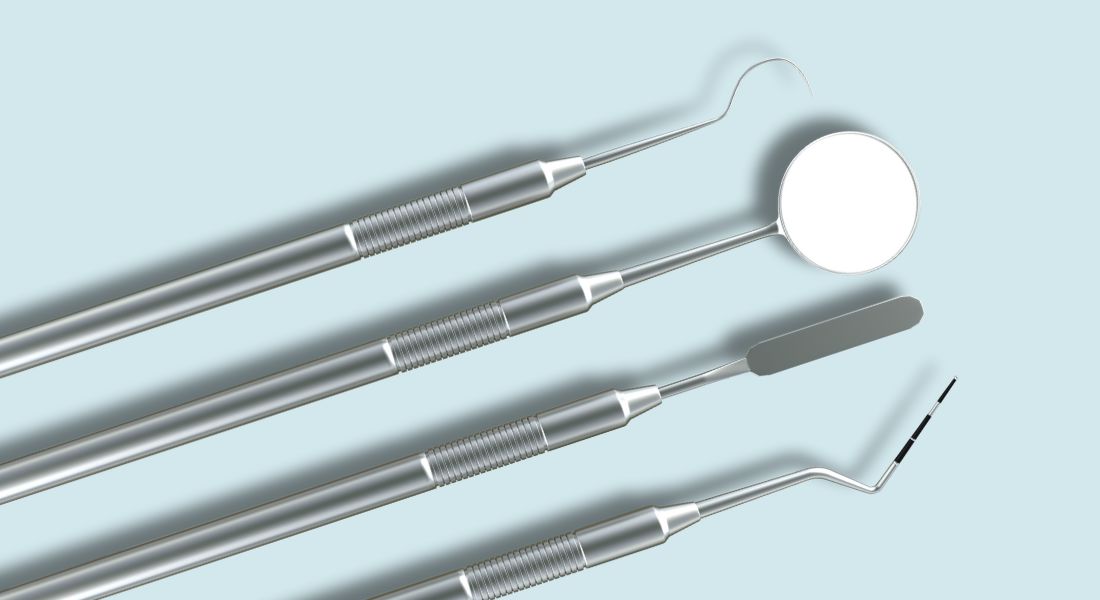Bacteria from your mouth can end up in your brain. Now dentists at Rigshospitalet have to examine patients more often
Bacteria in your mouth can cause diseases in other parts of the body. New research from the Department of Odontology at the University of Copenhagen helps change treatment procedures at Rigshospitalet.

We have all been told that brushing our teeth prevents oral diseases, but good oral hygiene is not only important to keep cavities away. In fact, bacteria from the oral cavity can travel from the mouth into the bloodstream and up to the brain. Here they can cause a condition known as brain abscess.
Fortunately, it is a rare condition, but if left untreated the patient may die.
We have known for many years that bacteria found in the brain come from other parts of the body, but previously, we did not know exactly where they came from. And that can make the disease difficult to prevent.
Now research from the University of Copenhagen shows that in more than half of patients admitted to Rigshospitalet with brain abscess, the condition is caused by bacteria from the oral cavity.
“This means that the Department of Infectious Diseases at Rigshospitalet can skip a step if bacteria from the oral cavity are found in patients with a brain abscess. Instead of having radiologists look at X-rays and try to determine whether it makes sense to send the patient to the dentist, we now automatically send patients directly to the dentist. This ensures immediate, relevant diagnostics and treatment,” explains Associate Professor Merete Markvart from the Department of Odontology at the University of Copenhagen.
Greater connection between mouth and body
In the study, the researchers analysed data on all patients admitted to Rigshospitalet with brain abscesses in the period 2015-2019.
“We looked at whether the patients met three specific criteria at the time of admission: First, whether the infection was caused by bacteria normally found in the oral cavity. Second, whether the patient suffered from an infection in the oral cavity. And third, whether the patient suffered from other bacterial infections that could have been the cause of brain abscess,” says Merete Markvart.
The study shows that there is a greater connection between diseases in the oral cavity and diseases in the rest of the body. Conditions like root canal infections and periodontitis are often without symptoms.
“It is important that the general public understands that you should go to the dentist not only to make sure you do not have any cavities - but also to make sure you do not have any bacterial conditions that are without symptoms,” says Dentist and PhD Student Frederik V. B. Jespersen, who is first author of the study.
Bacteria in the mouth can also cause infection in the heart
In most cases, diseases in the oral cavity are treated by the dentist with simple procedures, but in some, they develop into critical conditions like a brain abscess. If that happens, and the patient is admitted to the hospital, the patient is often in poor condition, possibly unconscious.
The next step for the researchers is to determine why some people have an increased risk of getting a brain abscess.
“Brain abscess is not the only condition caused by bacteria in the oral cavity, though. They can also cause infection of the heart valves,” says Merete Markvart.
Microorganisms from the oral cavity are also found in other parts of the body, including the vascular wall of the arteries in patients with arteriosclerosis, and it is a well-known fact that there is a connection between diseases in the oral cavity and other ordinary diseases.
Read the full study, ’Cerebral abscesses with odontogenic origin: a population-based cohort study’, here.
Contact
Associate Professor Merete Markvart
+45 35 33 77 65
mema@sund.ku.dk
